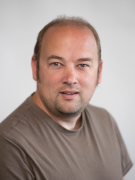Professor Alan Drew appointed a Fellow of the Royal Society of Arts
Professor Alan Drew has just been appointed to be a Fellow of The Royal Society for Arts (FRSA), for his charitable work in Indonesia.
Specifically, he has founded a charitable foundation, the Indonesian National Batteries Research Institute(NBRI), which supports research, training, education and capacity building of the university, government, non-government and industrial sectors in Indonesia in batteries, climate change and sustainable energy provision. In the 3 years since it has been operational, the NBRI now has 11 staff, over 500 members and has hosted more than 100 events in which over 10,000 people attended, with 70% of them from outside of Indonesia - a truly international impact.
The fundamental aim of the NBRI is to make Indonesia independent in sustainable energy through research and capacity building, which involves being an advocate and enabling solar, wind and geothermal generation, backed up with battery storage, all manufactured from locally sourced resources. The NBRI influences the political agenda in Indonesia, trains industrial and governmental staff, and undertakes collaborative research aimed at making materials and devices from locally sourced resources. In addition, the NBRI is currently planning a project to bring sustainable electricity to isolated and economically disadvantaged communities, with the ultimate aim to bring costs down to 12% of the cost of equivalent diesel generation, making 24/7 electricity accessible to those who earn less than $5 per day. The solution has the advantage of bringing the internet to communities for the first time, bringing significant economic benefits, and will enable the refrigeration of food and medicines in isolated communities.
The mission of the Royal Society of Arts (RSA), as expressed in the founding charter, is to embolden enterprise, enlarge science, refine art, improve manufacturing, extend commerce, alleviate poverty and secure full employment. The RSA Fellowship is an international community of 30,000, since its founding in 1754, of "achievers and influencers". Fellows include social entrepreneurs, scientists, community leaders, commercial innovators, artists, journalists, architects, engineers etc.
